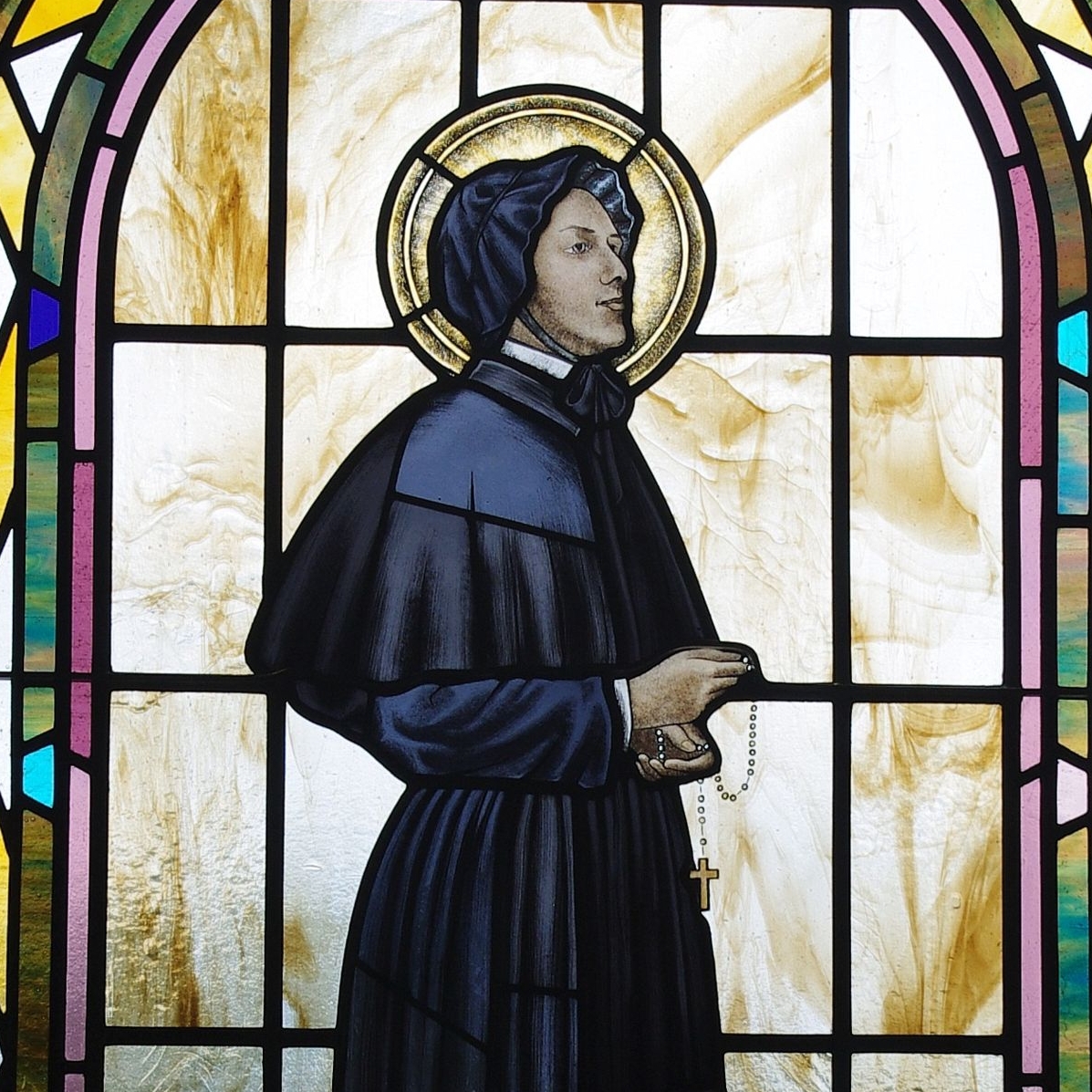January Saint, Parable & Virtue

Each month at Our Lady of Sorrows we explore a particular parable of Jesus, a saint from the great cloud of witnesses that surround us (see Hebrews 12:1), and a virtue (generally taken from the fruits of the Spirit [Galatians 5:22-23, 2 Corinthians 6:6, Ephesians 5:9, & 2 Peter 1:5-7] or the cardinal & theological virtues). The parable, saint and virtue are incorporated into our morning prayer, religion bulletin boards and religion classes. This focus on one parable, one saint and one virtue complements our Words of Wisdom program and serves as a supplement to our religion curriculum. This month we focus on the parable of the Persistent Widow and the Unjust Judge (Luke 18:1-8), the virtue of Faithfulness, and St. Elizabeth Ann Seton.
Then Jesus told them a parable about their need to pray always and not to lose heart. He said, “In a certain city there was a judge who neither feared God nor had respect for people. In that city there was a widow who kept coming to him and saying, ‘Grant me justice against my opponent.’ For a while he refused; but later he said to himself, ‘Though I have no fear of God and no respect for anyone, yet because this widow keeps bothering me, I will grant her justice, so that she may not wear me out by continually coming.’” And the Lord said, “Listen to what the unjust judge says. And will not God grant justice to his chosen ones who cry to him day and night? Will he delay long in helping them? I tell you, he will quickly grant justice to them. And yet, when the Son of Man comes, will he find faith on earth?”
Two summers ago, Pope Francis talked about this parable. He said Jesus uses this parable to show that if a widow with no influence could sway an uncaring judge merely through her patient and persistent pleas, then imagine how powerful that same force of prayer is when directed toward a loving, merciful and caring God! Jesus is showing how important and necessary it is to pray tirelessly, all the time - not just every now and then, when times are tough, or "when we feel like it."
"We all experience moments of exhaustion and discouragement, above all when our prayers don't seem to do anything," our Pope said. But contrary to the stubborn judge, he said, God speedily secures "the rights of his chosen ones who call out to him day and night," according to the Gospel of St. Luke (18:1-8). But that doesn't mean God will respond when "and in the ways that we want. Prayer is not a magic wand," the pope said.
Rather, Jesus shows how prayer is about strengthening one's relationship with the Father -- transforming one's own wishes and conforming them to God's will, Pope Francis said. Prayer "helps us keep our faith in God and to trust him even when we do not understand his will." And it is in prayer that people experience the compassion of God who comes to his children "filled with merciful love."
The virtue tied to this parable is faithfulness. Just as the persistent widow listened to the voice of God and lived a life of faithful trust, we are called to trust in God’s providential care. Even when it seems like justice is not forthcoming, God challenges us to continue to pray and trust, changing our own hearts, minds, souls and spirits to be able to see the subtle working of the Holy Spirit in the background of our lives. We are also called to be faithful to the teachings handed on to us through the living witness and tradition of the church, as well the written revelation of our Scriptures. Our conscience, formed by Sacred Scripture and Sacred Tradition, then begins to help us trust more fully in the revelations God has given us through the Church.
St. Elizabeth was the very first native born American to be canonized in our Church. She was born in 1774 and lived a quiet life of reading for the first part of her life. In 1794 she married a wealthy young man and they eventually had five children together. The next several years brought financial and health-related strains for her extended family and her husband. Moving to Italy in the hopes of helping her husband’s ailing health, he instead died there.
While in Italy she was introduced to the teachings of the Catholic Church (being born into the Episcopal Church), and in 1805, after returning to America, she converted to the Catholic faith.
In 1810 she opened the first free Catholic school in America, St. Joseph’s Academy; it was dedicated to the education of Catholic girls.
Eventually, St. Elizabeth was able to establish a religious community in Maryland dedicated to the care of the children of the poor. It was the first religious community of non-cloistered Religious Sisters to be founded in the United States. The order was called the Sisters of Charity of St. Joseph.
St. Elizabeth Ann Seton is the patron saint of Catholic schools. She endeared many to herself because of her unfailing kindness and her trust and faithfulness to God in all things. In her teaching and through her example she strove to embody and teach trust in and faithfulness to God. Let us pray that, just like that widow in Jesus’ story and just like St. Elizabeth, we can focus on growing closer to God through faithfulness to God through daily prayer, even when we don’t feel like it.
Blessings & Peace,
Hugo De La Rosa III
